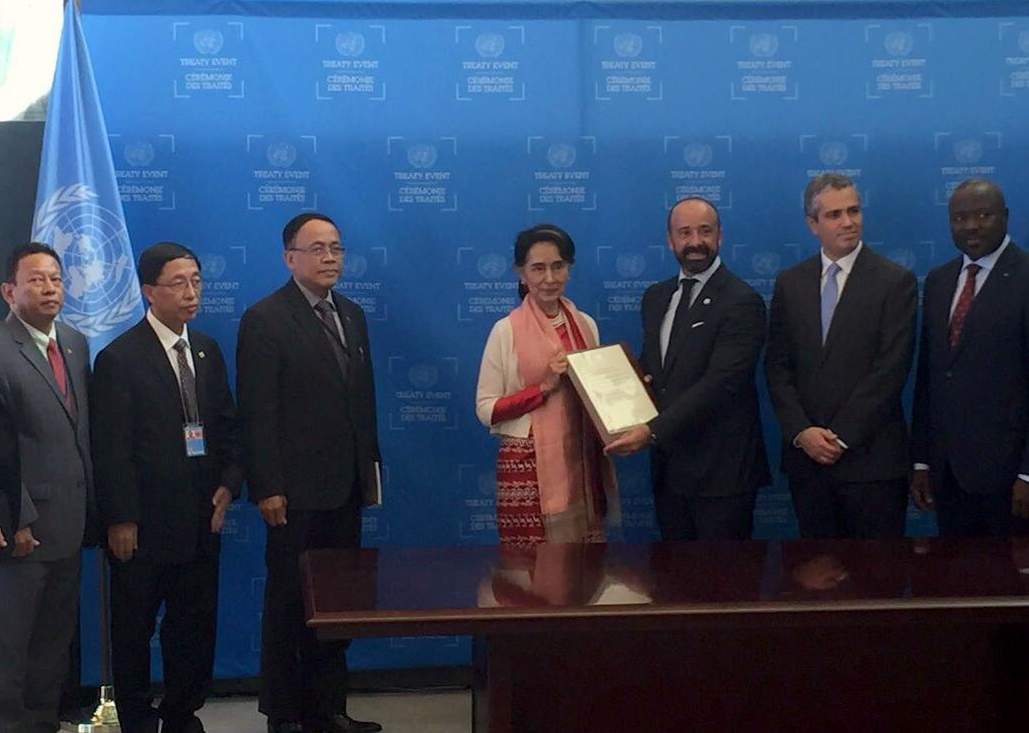Burma and the southern African nation of Swaziland on Wednesday became the latest countries to ratify the Comprehensive Nuclear-Test-Ban Treaty (CTBT).
The multilateral agreement, which was adopted by the United Nations General Assembly in September 1996 but has yet to come into force, bans all nuclear explosions, for both military and civilian purposes.
Burmese State Counsellor Aung San Suu Kyi deposited the instrument of ratification at a ceremony held at the United Nations Headquarters in New York on Wednesday, signalling her country’s acceptance of the terms of the treaty.
The ceremony, which was also attended by UN Under-Secretary-General for Legal Affairs Miguel de Serpa Soares, came nearly 20 years after Burma signed the agreement in November 1996.
Thirteen countries, including North Korea, India and Pakistan, have yet to sign the agreement, while 17 have signed but not ratified, including China and the United States.
Burma’s former military rulers were long suspected of harboring nuclear ambitions, fueled in part by their secretive relationship with the pariah regime of North Korea. The suspicions were a major obstacle to normalising relations with the United States, which announced earlier this month that it would lift remaining sanctions on the country.
[related]
The treaty will not go into effect until 180 days after it has been ratified by all 44 countries listed under Annex 2 of the agreement — that is, nations that possessed nuclear power or research reactors at the time of the 1996 Conference on Disarmament.
At present, five Annex 2 states — China, Egypt, Iran, Israel and the United States — have signed but not ratified the treaty, while another three — India, North Korea and Pakistan — have not signed it.
With Burma’s ratification of the treaty, the total number of countries considered parties to the CTBT has now reached 166.



